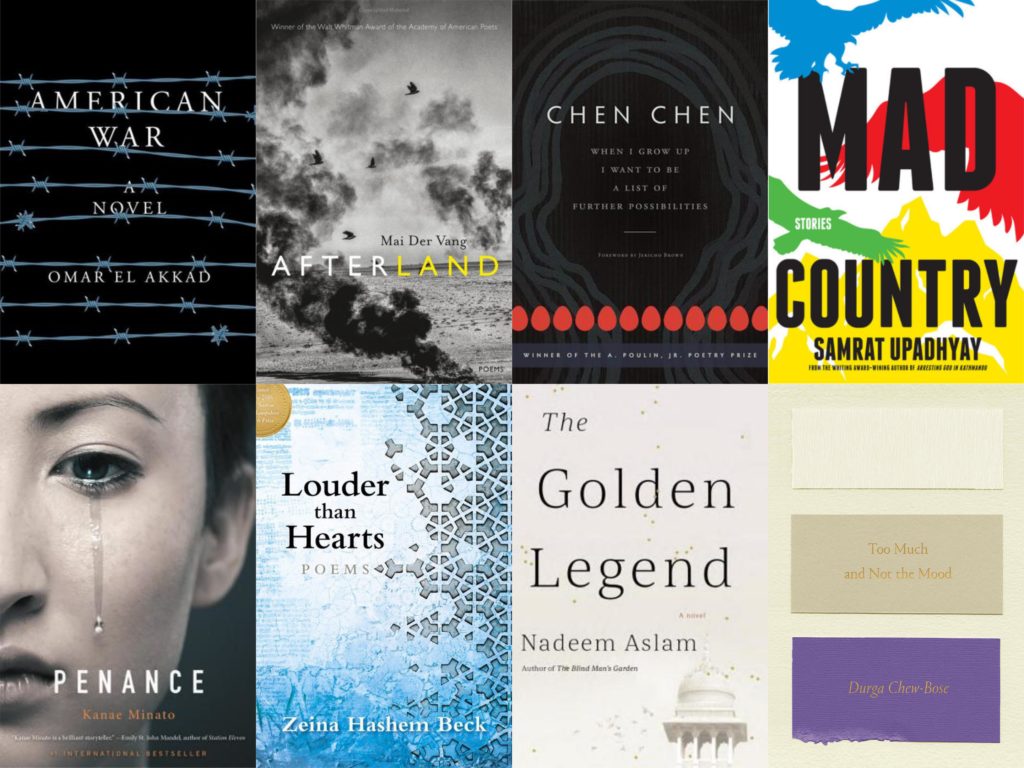South Korean female divers, Malay sorceresses, three generations of Palestinian women in Bay Ridge, and poetry on the multiplicities of the self through queer and trans perspectives.
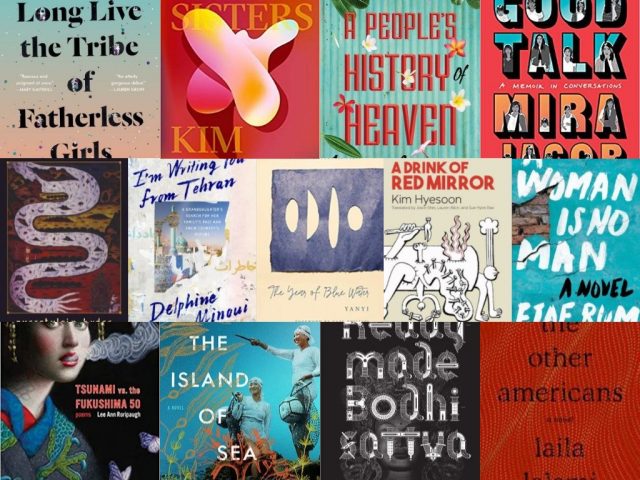
March 29, 2019
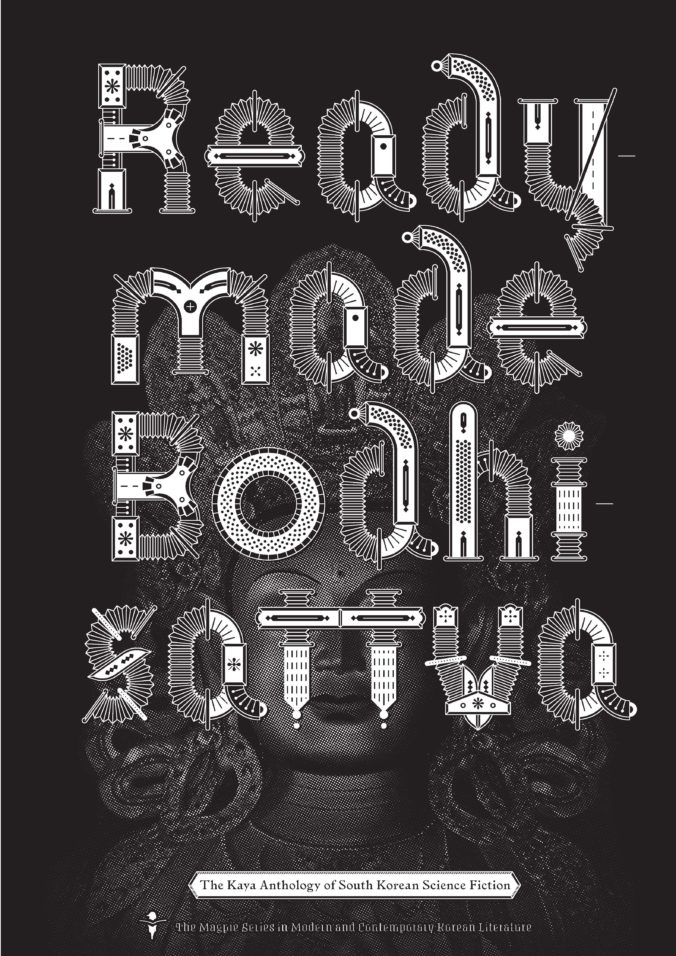
Readymade Bodhisattva: The Kaya Anthology of South Korean Science Fiction ed. by Sunyoung Park and Park Sang Joon
This anthology presents a collection of several South Korean science and speculative fictional works translated into English. With stories from the 1960s to the 21st century, these South Korean science fiction authors offer narratives that reimagine space, robots, and distant planets. While in conversation with global science fiction, these works also focus heavily on aspects of Korean culture and history, offering “fresh perspectives on global technoindustrial modernity and its human consequences.” (Kaya Press, March)

tsunami vs. the fukushima 50 by Lee Ann Roripaugh
tsunami vs. the fukushima 50 revisits the tragic Fukushima tsunami and earthquake in 2011, and the lives of the Fukushima 50, the people who stayed at the Fukushima Daiichi plant to stabilize the nuclear reactors. Lee Ann Roripaugh captures both survivors and victims— and she introduces the unforgettable image of Tsunami, a character who “defend[s] her rights as a living being in contemporary industrialized society” and whose wrath is an indicator of the damage inflicted onto Earth by humanity. (Milkweed, March 12)

Blood Sisters by Kim Yideum trans. Jiyoon Lee
Blood Sisters is set in the 1980s, a period of political turmoil and reform in South Korea. Kim Yideum writes about the dread of many Korean women in the 1980s through the perspective of Jeong Yeoul, a college student. As Jeong Yeoul struggles in a corrupt society filled with sexual violence and competing ideologies, Yideum creates a powerful image of a woman’s efforts to live despite pervasive injustice as the young college student channels her helplessness into art. (Deep Vellum, March 12)

Portrait of Sebastian Khan by Aatif Rashid
Muslim American college student Sebastian Khan is about to turn 22 as he finishes his final year at Berkeley studying art history. Despite his dislike for long-term commitments, he finds himself dating Fatima, who’s determined to embark upon a stable professional career after graduation. Conflicted by his love for free-spirited pleasure and the realities of accomplishment, commitment, and financial success, Sebastian wrestles with his desire to live with art and beauty as his highest calling. (7.13 Books, March 18)

A Drink of Red Mirror by Kim Hyesoon trans. by Jiwon Shin, Lauren Albun, Sue Hyon Bae
A Drink of Red Mirror focuses on body politics through relationships, perceptions, control, and the lack thereof. As the Korean feminist writer caresses and rejects the ideas of boundaries through grotesque and horror-filled imagery, Kim Hyesoon focuses on the idea of the body and the liminal spaces it occupies within, between, and without the self. (Action Books, March 20)
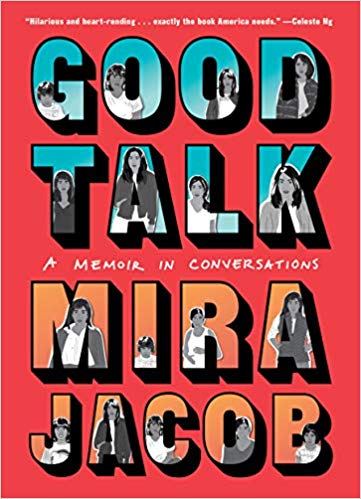
Good Talk by Mira Jacob
Good Talk delves into Mira Jacob’s experiences growing up Indian American in New Mexico and raising a biracial son during the Trump era. As she wrestles with questions of race, sexuality, and love, she also focuses on America and its current political climate through conversations with her son as he begins to question everything from Michael Jackson to Trump. Despite dividing realities and tensions fraught with exploring American identity, Jacob invites us think about these issues in an intimate and personal conversation. (One World, March 26)

The Island of Sea Woman by Lisa See
Mi-ja and Young-sook are two best friends training to become haenyeo, female free divers who have trained their bodies to withstand the extremes of the ocean on the South Korean island of Jeju. Despite their love for each other, their friendship is tested and pushed to the breaking point as they grow up. Spanning decades of Japanese colonialism and its effects to the present day, The Island of Sea Woman captures images of the unforgettable and fierce female divers, and the dramatic history that has shaped their lives. (Scribner, March)
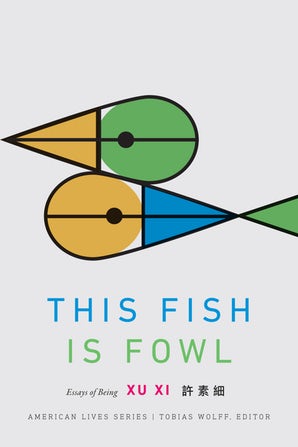
This Fish is Fowl by Xu Xi
As Xu Xi writes around the globe from her origins as an Indonesian of Chinese descent in Hong Kong to her experiences in other multiple countries, she reflects on her identities and the selves that have come from questions of cultural and familial identity. Through a collection of personal essays, the author openly and relentlessly questions the “mystery of humanity” in a world littered with “complicated and precarious moment[s].” (Nebraska Press, March 1)

King of Joy by Richard Chiem
Corvus has always relied on her overactive imagination as a way to cope through the grief and humdrum of everyday life. After a tragic loss, Corvus finds herself navigating around porn sets, playwrights, movie theater jobs, and hippos in a refusal to succumb to the many traumas she’s endured. King of Joy is a tale that tiptoes around the worlds of realism and absurdism as Corvus undertakes a quest for survival against all odds. (Soft Skull Press, March 5)
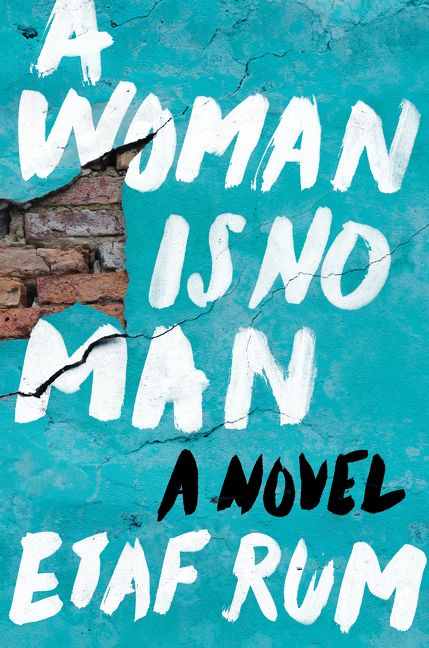
A Woman Is No Man: A Novel by Etaf Rum
Etaf Rum’s debut novel follows three generations of Palestinian women as they navigate Arab culture, religion, fears of assimilation, and the silencing of their own personal wants and needs. In 1990, Isra is brought to Brooklyn, New York for an arranged marriage and is quickly pressured to have children at the insistence of her mother-in-law Fareeda. Almost two decades later, Isra’s oldest daughter Deya is constantly harassed to meet with suitors at her grandmother’s insistence. As the story alternates between the perspectives of Isra, Fareeda, and Deya, the shame and secrets behind the family’s name and honor emerges as each woman tries to find her own voice. (Harper, March 5)
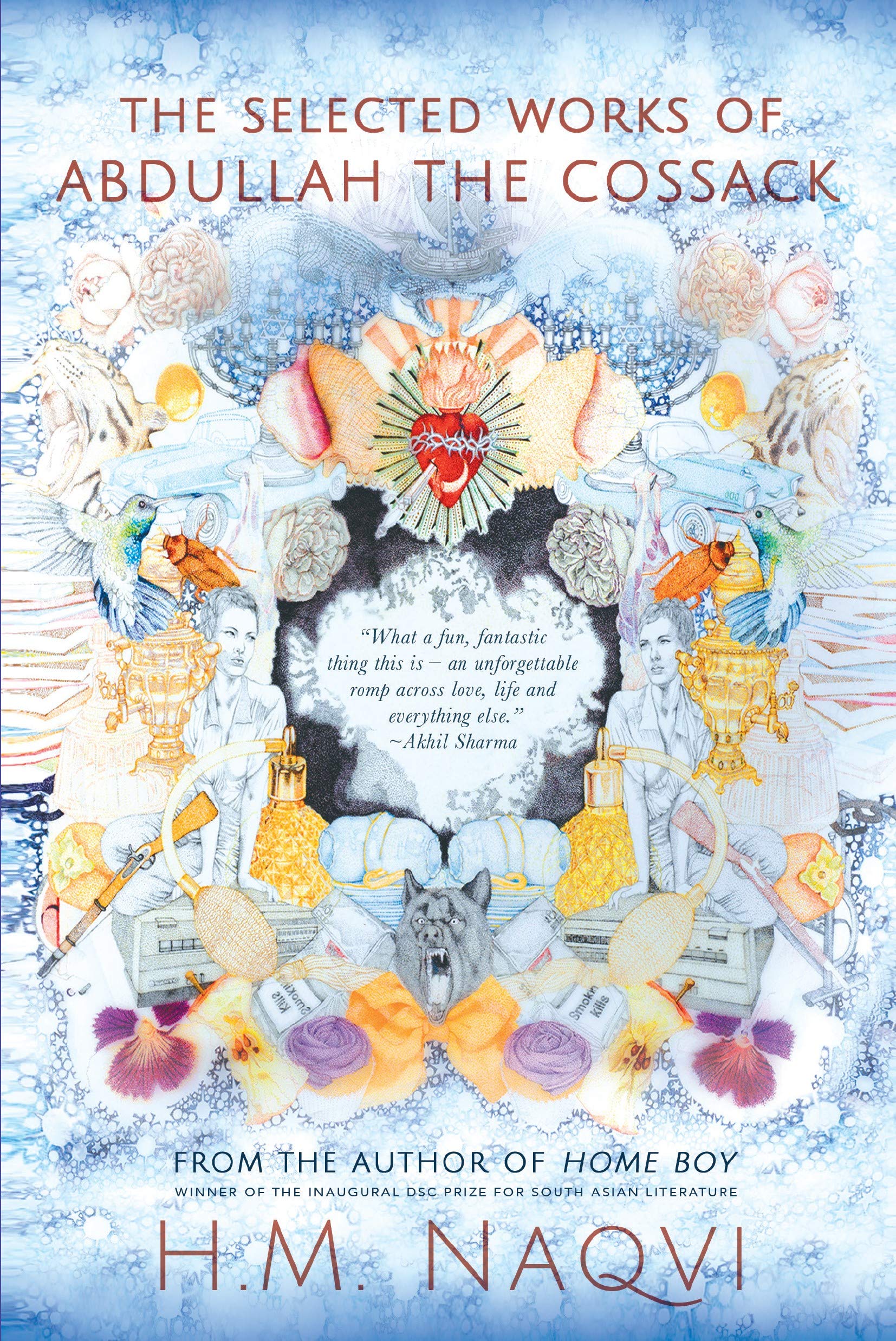
The Selected Works of Abdullah the Cossack by H.M. Naqvi
H.M. Naqvi’s novel is narrated by an old man contemplating his life in the city of Karachi. While he views himself with high esteem, Abdullah is only seen as a reckless and wasteful elder by the rest of his family. Amid countless rescues, potential dangers from the Karachi mob, and threats from relatives, Abdullah comes up a bold plan to help everyone in an absurd tale of family, legacy, and loyalty. (Grove Press, March 12)
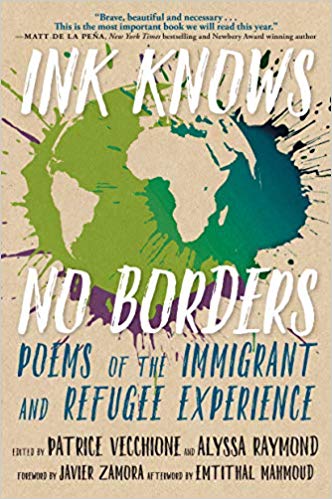
Ink Knows No Borders: Poems of the Immigrant and Refugee Experience edited by Patrice Vecchione and Alyssa Raymond
With pieces originally published between 1984 and 2018, Ink Knows No Borders focuses on poets from all over the world with shared experiences as first and second-generation immigrants and refugees. The authors offer accounts of culture shock, racism, and displacement of one’s self within, outside, and along borders. Yet this poetry collection also captures messages of hope as the poets write on the tender joys of family, self-discovery, and safety. (Triangle Square, March 12 2019)

The True Queen by Zen Cho
The sequel to A Sorcerer to the Crown, The True Queen is a story of two cursed sisters named Muna and Sakti, who are found by a powerful Malay sorceress on the island of Janda Baik. After they are sent off to England in order for Sakti to train at a magical academy, she begins to fade away. Despite her lack of magical abilities, Muna finds herself maneuvering high society and English magicians in order to save her sister. (Ace, Mar 12)

River of Fire by Qurratulain Hyder
Set during the classical, medieval, colonial, and modern post-national epochs of India, Qurratulain Hyder reflects and meditates on history and culture through four characters. Characters Gautam, Champa, Kamal, and Cyril appear and reappear throughout the novel in various incarnations with the same names. As the four characters navigate a vortex of politics and power in Indian history, Hyder walks readers down the merciless passing of time around the lives of ordinary people. (New Directions Reissue, March)
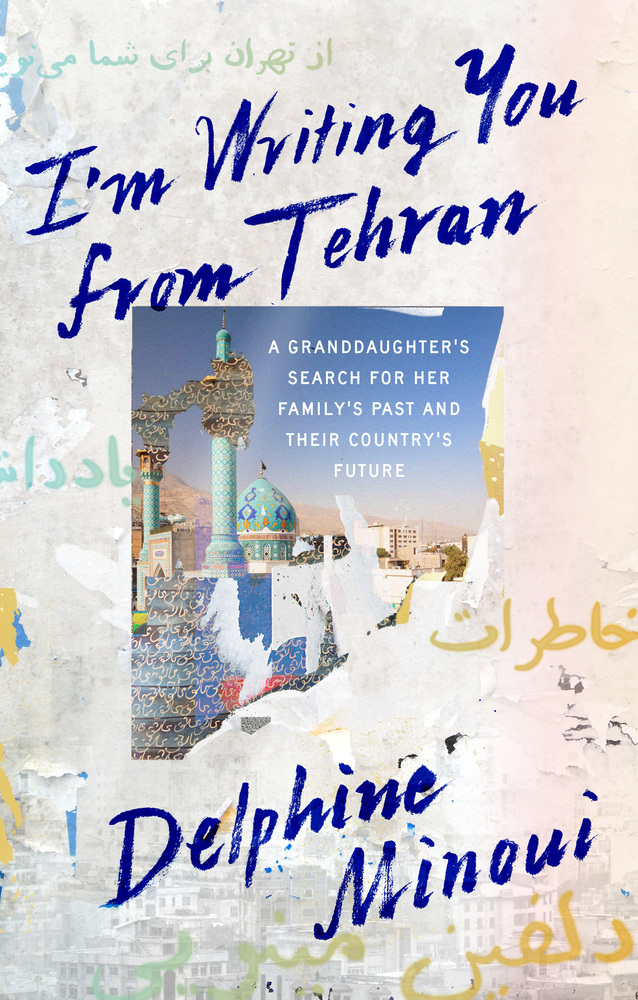
I’m Writing You from Tehran: A Granddaughter’s Search for Her Family’s Past and Their Country’s Future by Delphine Minoui trans. Emma Ramadan
Written as a letter to her deceased grandfather, Minoui recounts the ten-year journey she embarked on during her stay in Iran. As she befriends and interviews people of different classes and political beliefs, Minoui learns of the violent fluctuations of Iranian politics. In the midst of encounters with intelligence agents, radical rightists, and student protests, she uncovers both her country’s history and the secrets of her family. (Farrar, Straus, and Giroux; March 5th)
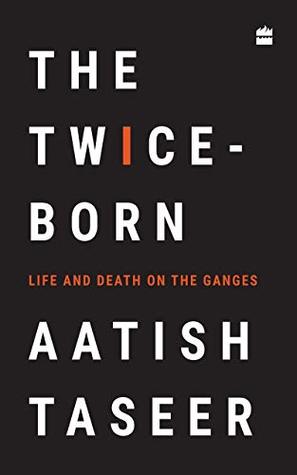
The Twice-Born: Life and Death on the Ganges by Aatish Taseer
After two decades in Manhattan, Taseer goes to Benares in order to understand his relationship and estrangement from India. In the time he spends in the city, Taseer finds himself meditating on the colonized self, his father’s death, and a search for authenticity through the lens of religion, culture, caste, and the modern age.(Farrar, Straus, and Giroux; March 5th)

Poets of the Chinese Revolution by Chen Duxiu, Chen Yi, Mao Zedong, and Zheng Chaolin Edited by Gregor Benton and Feng Chongyi
Poets of the Chinese Revolution captures the voices of Chen Duxiu, Chen Yi, Mao Zedong, and Zheng Chaolin. While all four poets wrote in the classical style, their writings offer different perspectives on the Chinese Revolution and the groups and individuals who competed for power. Despite their bitter opposition and antagonism towards one another, these voices collectively depict “the complicated relationship between Communist revolution and Chinese cultural tradition.” (Verso Books, May 14)
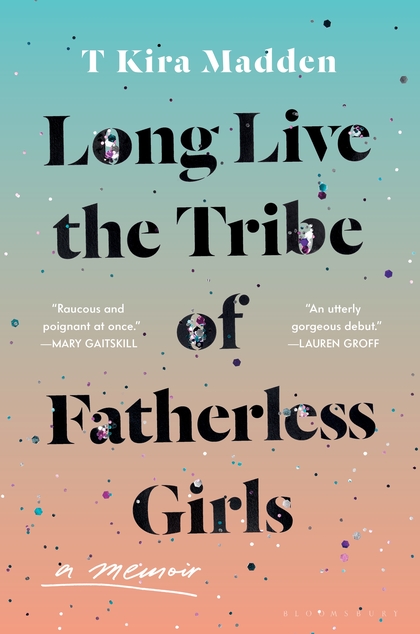
Long Live the Tribe of Fatherless Girls by T Kira Madden
In her memoir Long Live the Tribe of Fatherless Girls, TK Madden writes powerfully on her coming of age experience and her navigation of identity growing up. Born as a love child, Madden grew up in a home where her parents struggled with drug and alcohol addiction, she was often left alone. Through each section, Madden walks through the weight and trauma of her memories on feeling fatherless, motherless, familyless, friendless, with ensuing questions on race, sexuality, addiction, and healing. (Link to TK’s interview on The Margins)

Internment by Samira Ahmed
Set “fifteen minutes into America’s future” and shortly after the 2016 presidential election, Internment follows the story of seventeen-year-old Muslim American Layla. Layla, her family, and other Muslims are rounded up and placed in Manzanar, an internment camp previously used to house Japanese Americans during WWII. Despite repercussions and threats, Layla is determined to fight back against oppressive systems to gain her freedom back. (Little, Brown Books for Young Readers, March 19)

A People’s History of Heaven by Mathangi Subramanian
Heaven is a slum in Bangalore where a tightly knit community of women and girls gather and live together. Banu, Deepa, Joy, Rukshana, and Padma are five young girls who naturally gravitate to each other and eventually create a group that accepts and protects each other. But once their homes are threatened by demolition with bulldozers, they choose to stand up amidst changing crossroads and odds that aren’t in their favor. (Algonquin Books, March 19)
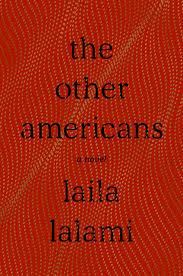
The Other Americans: A Novel by Laila Lalami
The Other Americans takes place after a Moroccan man named Dris is killed in a hit-and-run. The story follows not only the impact his death had on Dris’s youngest daughter Nora, but also revolves around other characters who are indirectly and immediately involved to the incident in some way. As Nora comes to terms with what she’s distanced herself from, Laila Lalami delivers a powerful message on the unexplainable. (Pantheon, March 26)

A Student of History: A Novel by Nina Revoyr
After graduate student Rick Nagano takes up a job transcribing the journals of an oil heiress because of his financial constraints, he is pulled into the world of wealth and privilege in Los Angeles. From his position as an outsider, he slowly realizes the walls and spaces that have been put up in the city to divide the rich elite and the lower classes. Slowly, Rick is exposed to a spectacle of excess and waste, and the effects such lavishness has on the soul. A Student of History delivers a powerful and thought-provoking message on financial and social inequalities in the modern era.(Akashic, March)
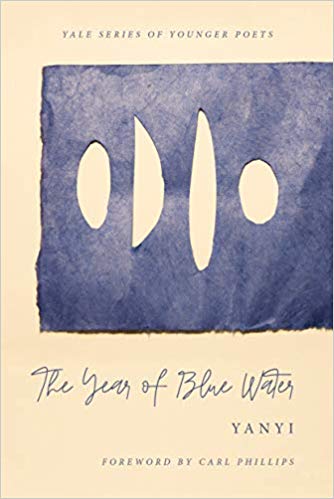
The Year of Blue Water by Yanyi
The Year of Blue Water explores the idea of self both within and in relation to others. As he writes on experiences of immigration as a Chinese American, Yanyi explores queerness, mental illness, and kinship. In meditation through memoir-like writing, Yanyi’s poetry discusses navigating a multiplicity of identities through the ordinary. (Link to Yanyi’s book launch)


